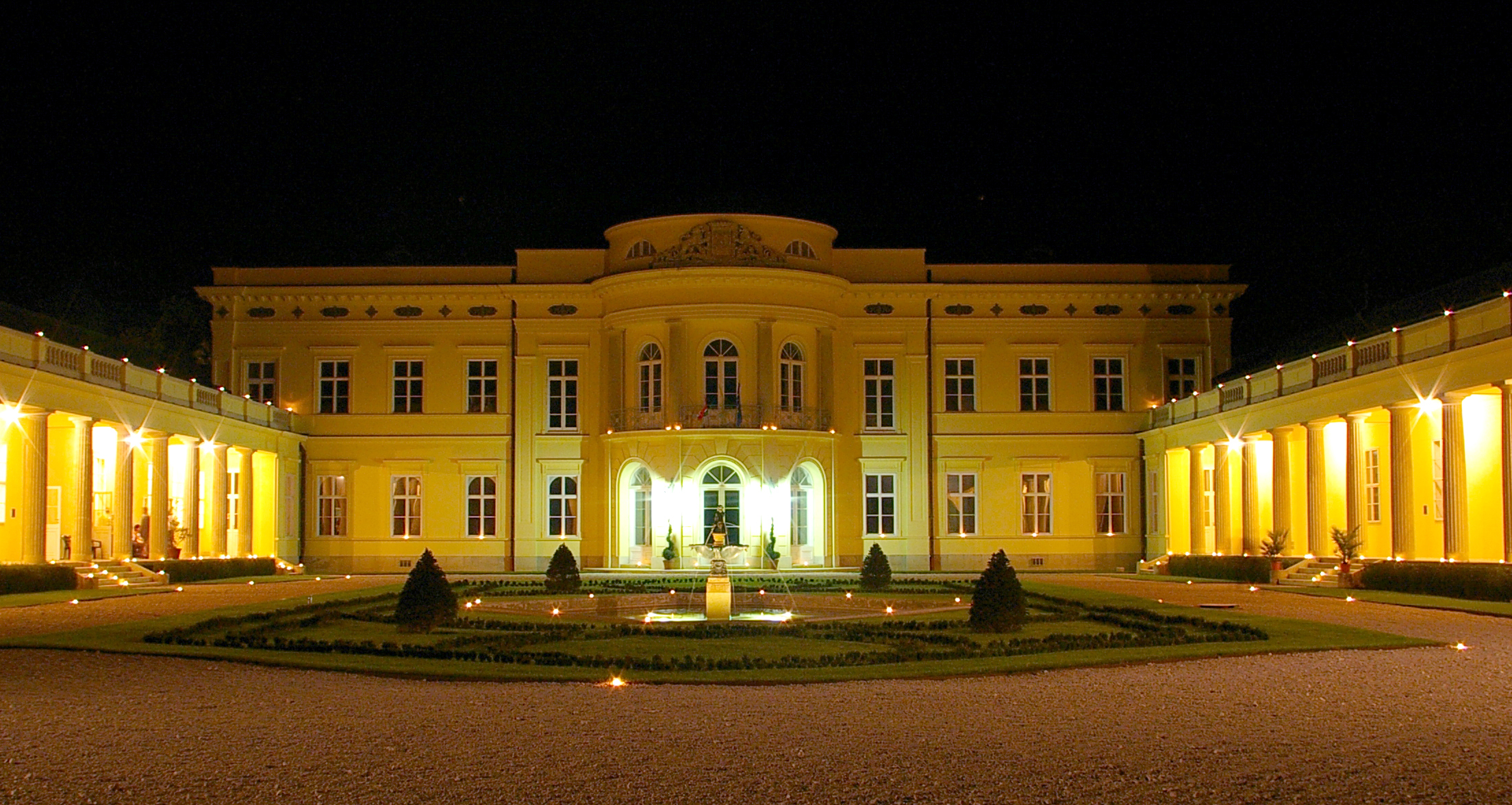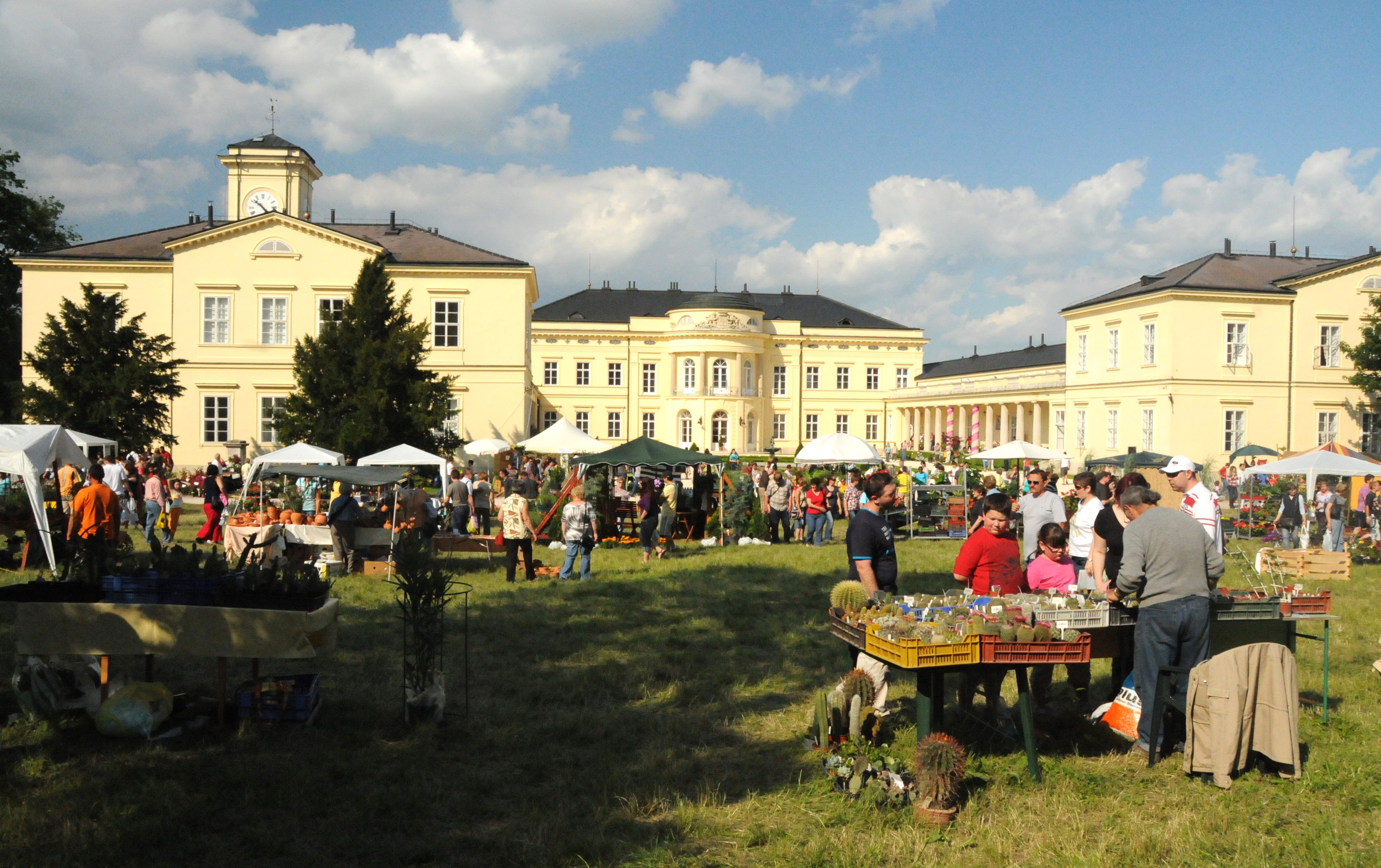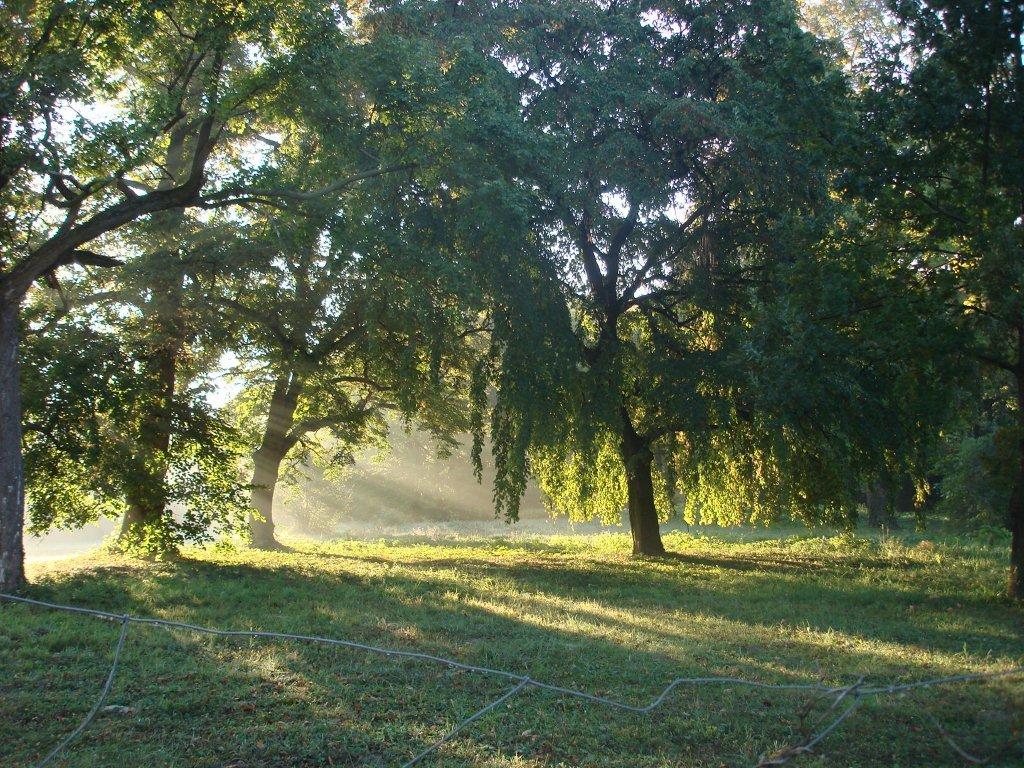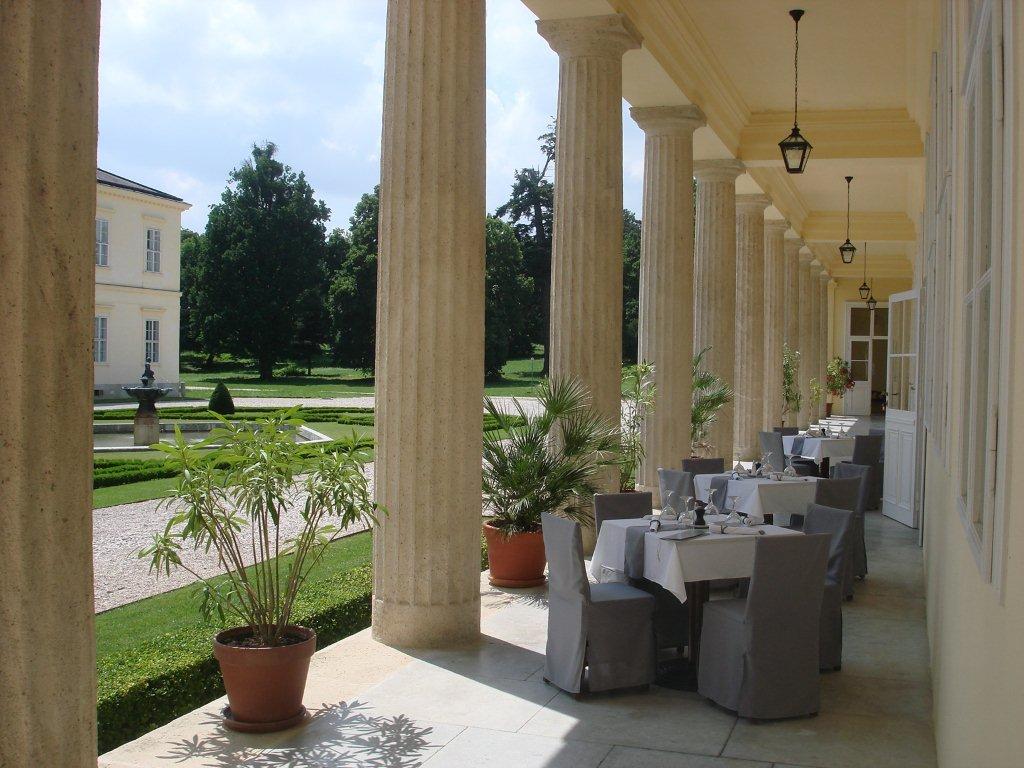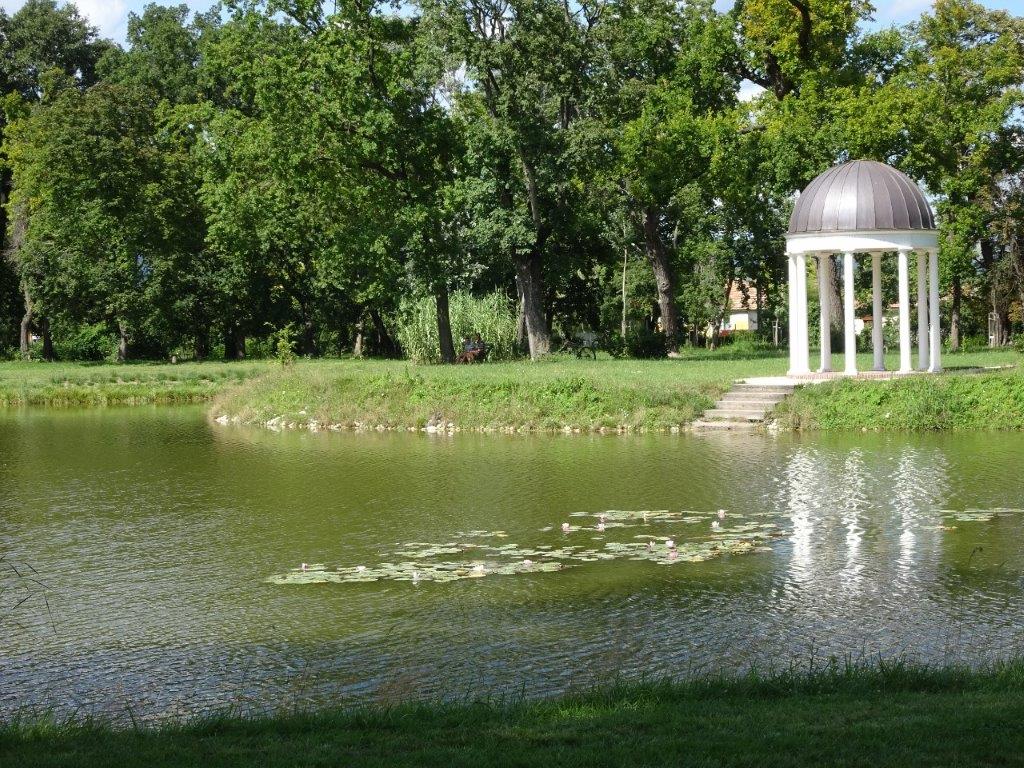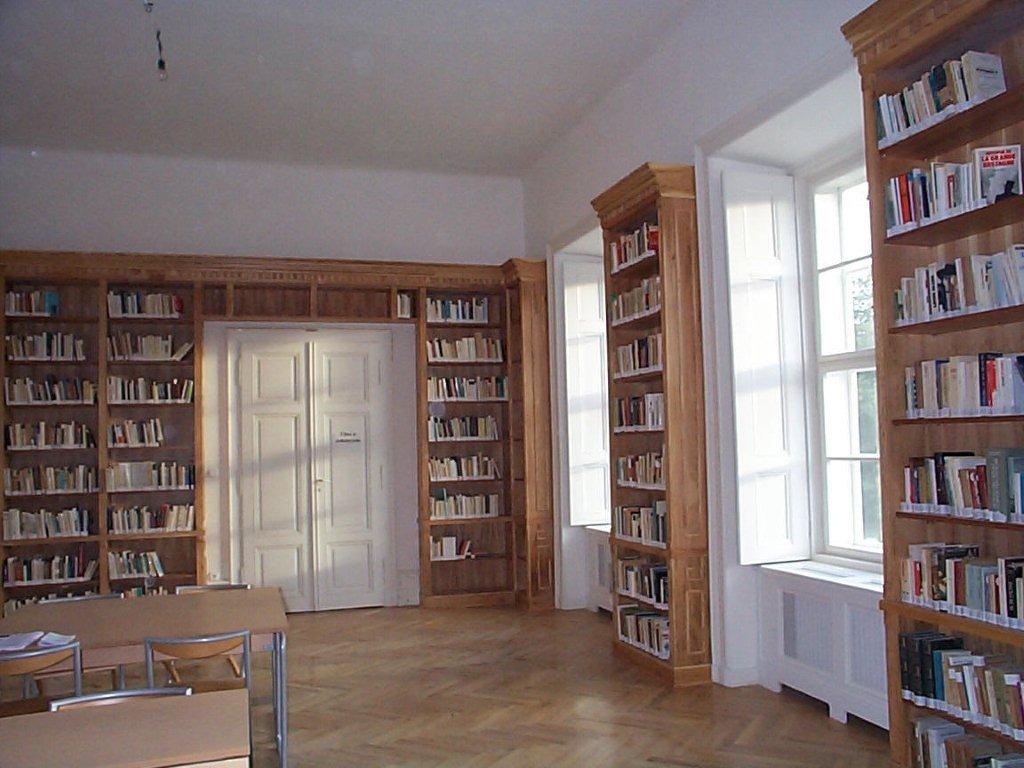Situated at Fehérvárcsurgó near Budapest, Károlyi Castle has been a heritage site for culture (CCR) for around twenty years. With a strong European identity, the castle’s ambition is to be a key player in opening up the relationship between Hungary and the rest of Europe.
THE HERITAGE SITE
The castle was constructed in 1844 by the Austrian architect Heinrich Koch on the foundations of a 17th-century castle, and the most recent major reconstruction dates from 1910. The castle was nationalised in 1945 and ransacked, and its function and ownership changed several times before it was finally abandoned. In 1997, with the signing of a 99-year lease, the renovation of the castle and its grounds were initiated by the Joseph Károlyi Foundation. The Foundation was created in 1994 by the son of the previous owner with the intention of establishing a cultural centre on the site. The architectural restoration was completed in 2011, the redecoration of certain spaces being finished in 2018. The main building is comprised of several rooms, exhibition spaces, two specialist libraries, 22 bedrooms and a restaurant. The English-style park and French-style gardens (50 hectares) were designed by the landscape artist Janos Hein. The restoration of the communal spaces, with a theatre, exhibition spaces and hotel rooms, will be completed in 2020.
THE CULTURAL PROJECT
The cultural centre of Fehérvárcsurgó aims to bring back to life a listed historic monument, to contribute to a dialogue between Hungary and the rest of Europe and to work towards a better understanding of Hungary in Europe, particularly France. The main facets of its work are as follows:
Its main areas of activity are: architectural heritage, with international symposiums; chamber music, with a string quartet festival and summer music academy in association with the Chamber Music Department of the Budapest Academy of Music; research and the exchange of ideas in the social sciences through international symposiums organized independently or in cooperation with foreign universities or cultural centers in Hungary; garden art and the preservation of green heritage with the creation of a nearly 2 km long dendrological trail in the wooded part of the park in association with the International Dendrological Association. As part of its activities related to green heritage, the Foundation has stepped up its activities for the visually impaired, not only inside the building (with the discovery of a collection of Asian art objects from the permanent collection assembled by the last owner of the castle before the war and installed in the Visitor Center in the restored former stables) but also in the park, with the tactile discovery of 25 main subjects and their leaves. The Cultural Meeting Center coexists with a hotel and restaurant, with plans to create a vegetable garden to anchor it even more firmly in the rural landscape and respect the environment. The complex contributes to the development of local and regional cultural tourism but is also working to become more open to international tourism, in particular through the launch of a Grand Tour of Hungary's Parks for garden tourism enthusiasts.
The cultural centre sits alongside a hotel and restaurant created by the Károlyi family and run by a commercial company, all of which contribute to the development of cultural tourism in the area and beyond, and help to promote the principle, little known in Hungary, of the re-use of historic monuments.
ACTIVITIES
The novelty of the concept of the heritage cultural centre in Hungary, and the family dimension, were a challenge in conceiving new uses for the diverse spaces and constitute a unique situation in Hungary at present. The presence of two libraries (housing around 12,000 books) and archive collections attract researchers and are the impetus for the organisation of study days.
Music reveals the spirit of a place. The summer music academies for chamber music are exceptional events which host young musicians from overseas, and as with the festival and the September string quartets, they contribute to the promotion of this method of heritage re-use.
The 50-hectare park, with its French-style garden in the cour d’honneur and the English-style park bordering the forest, are integral elements of the Foundation’s activity. The Journées Européenes des plantes and the annual Art des Jardins encourage the interchange of ideas between European professionals working in the field.
PARTNERSHIPS
The principal of the heritage site for culture was in 1994 a new concept for Hungary, and the guiding aim of the Joseph Károlyi Foundation was to contribute to the opening up of the country to Europe. To that end, partnerships have been forged with Hungarian and European cultural institutes, embassies, foundations and university departments. These give a European dimension to events and activities, and allow Hungarian participants to create links with foreign artists and scientists. This applies to all the events produced by the Foundation – the Journées Européenes des Plantes and the Art des Jardins (launched in 2005) welcome each year three guest countries – France and the two countries holding the presidency of the European Union.

